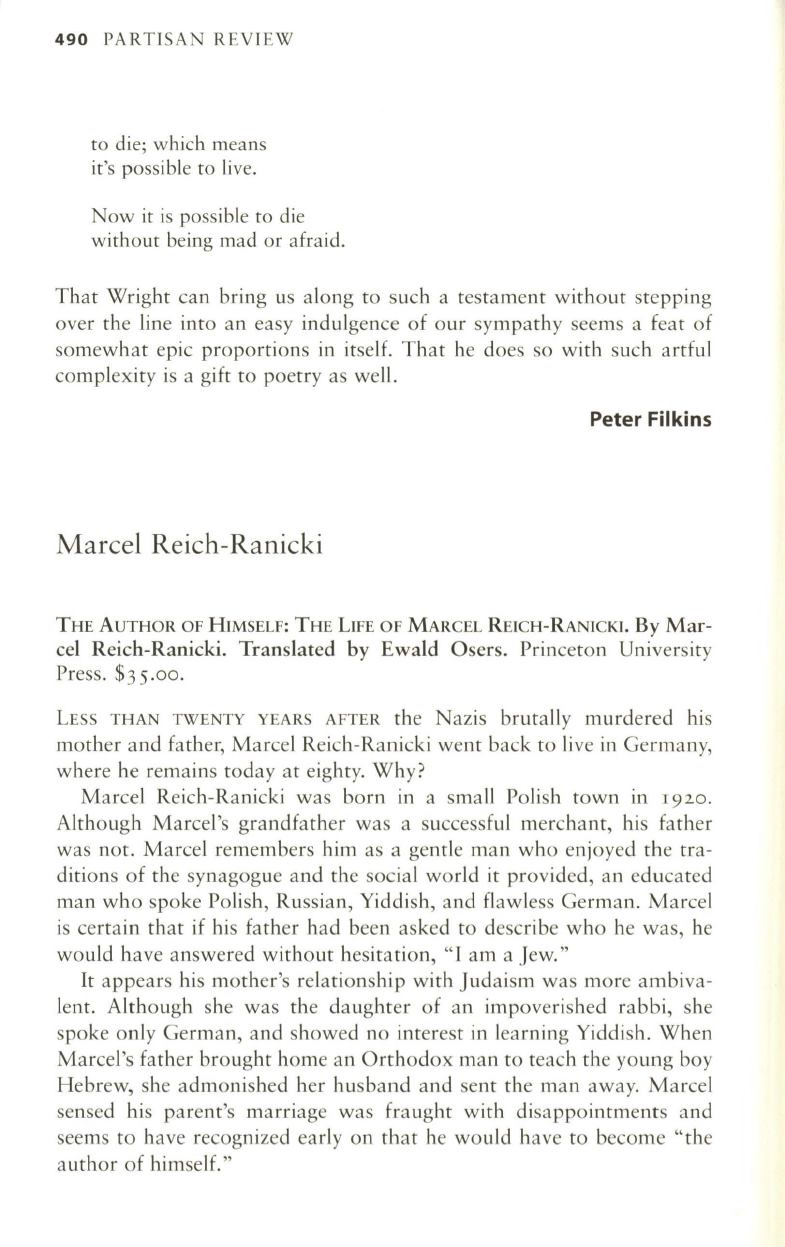
490
PARTISAN REVIEW
to die; which means
it's possible to li ve.
Now it is possible
to
die
without being mad or afraid.
That Wright can bring us along to such a testament without stepping
over the line into an easy indulgence of our sympathy seems a feat of
somewhat epic proportions in itself. That he does so with such artful
complexity is a gift to poetry as well.
Peter Filkins
Marcel Reich-Ranicki
THE AUTHOR OF HIMSELF: THE LIFE OF MARCEL REICH-RANICKI. By Mar–
cel Reich-Ranicki. Translated by Ewald Osers. Princeton University
Press.
$35.00.
LESS THAN TWENTY YEARS AFTER the Nazis brutally murdered his
mother and father, Marcel Reich-Ranicki went back to live in Germany,
where he remains today at eighty. Why?
Marcel Reich-Ranicki was born in a sma ll Polish town in
1920.
Although Marcel's grandfather was a successful merchant, his father
was not. Marcel remembers him as a gentle man who enjoyed the tra–
ditions of the synagogue and the social world it provided, an educated
man who spoke Polish, Russian, Yiddish, and flawless German. Marcel
is certain that if his father had been asked to describe who he was, he
would have answered without hesitation,
"I
am a Jew."
It
appears his mother's relationship with Judaism was more ambiva–
lent. Although she was the daughter of an impoverished rabbi, she
spoke only German, and showed no interest in learning Yiddish. When
Marcel's father brought home an Orthodox man to teach the young boy
Hebrew, she admonished her husband and sent the man away. Marcel
sensed his parent's marriage was fraught with disappointments and
seems to have recognized early on that he would have to become "the
author of himself."


